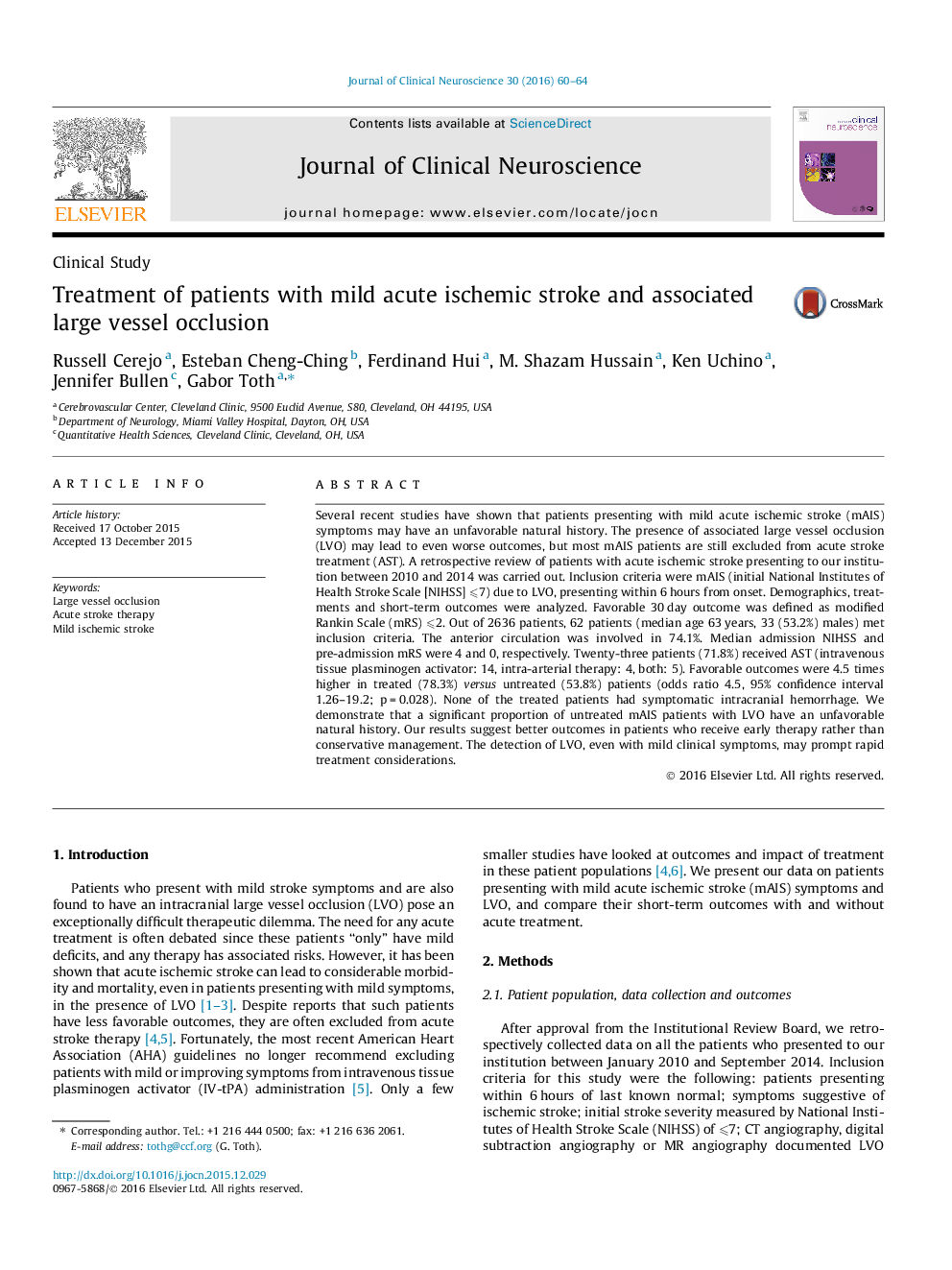| Article ID | Journal | Published Year | Pages | File Type |
|---|---|---|---|---|
| 3058140 | Journal of Clinical Neuroscience | 2016 | 5 Pages |
•A significant number of untreated mild ischemic stroke patients with large vessel occlusion have an unfavorable natural history.•Favorable outcomes were seen in patients who received early therapeutic intervention rather than conservative management.•In patients with mild ischemic stroke symptoms, early evaluation for large vessel occlusion may prompt treatment.
Several recent studies have shown that patients presenting with mild acute ischemic stroke (mAIS) symptoms may have an unfavorable natural history. The presence of associated large vessel occlusion (LVO) may lead to even worse outcomes, but most mAIS patients are still excluded from acute stroke treatment (AST). A retrospective review of patients with acute ischemic stroke presenting to our institution between 2010 and 2014 was carried out. Inclusion criteria were mAIS (initial National Institutes of Health Stroke Scale [NIHSS] ⩽7) due to LVO, presenting within 6 hours from onset. Demographics, treatments and short-term outcomes were analyzed. Favorable 30 day outcome was defined as modified Rankin Scale (mRS) ⩽⩽2. Out of 2636 patients, 62 patients (median age 63 years, 33 (53.2%) males) met inclusion criteria. The anterior circulation was involved in 74.1%. Median admission NIHSS and pre-admission mRS were 4 and 0, respectively. Twenty-three patients (71.8%) received AST (intravenous tissue plasminogen activator: 14, intra-arterial therapy: 4, both: 5). Favorable outcomes were 4.5 times higher in treated (78.3%) versus untreated (53.8%) patients (odds ratio 4.5, 95% confidence interval 1.26–19.2; p = 0.028). None of the treated patients had symptomatic intracranial hemorrhage. We demonstrate that a significant proportion of untreated mAIS patients with LVO have an unfavorable natural history. Our results suggest better outcomes in patients who receive early therapy rather than conservative management. The detection of LVO, even with mild clinical symptoms, may prompt rapid treatment considerations.
